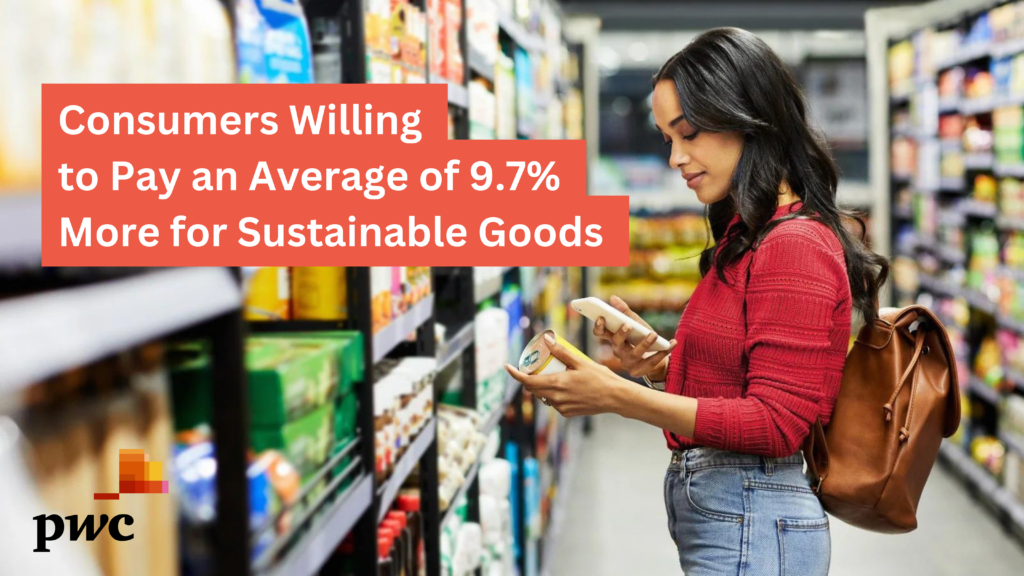Consumers Willing to Pay Average of 9.7% More for Sustainable Goods: PwC Survey

Key Impact Points:
- 9.7% premium: Consumers are willing to pay an average of 9.7% more for sustainable goods.
- Inflation worries: 31% of consumers see inflation as the top risk to their economy.
- Grocery expenses: 62% expect grocery costs to rise the most in the coming months.
- Digital shift: 46% of consumers buy products directly through social media, up from 21% in 2019.
Despite growing inflation and cost-of-living pressures, consumers are ready to pay a premium for sustainability, according to PwC’s 2024 Voice of the Consumer Survey. The survey, which polled over 20,000 consumers across 31 countries, reveals key insights into consumer behavior amid economic challenges and climate concerns.
Sustainability Takes Priority: A significant 85% of consumers report experiencing the effects of climate change daily, prompting a shift towards sustainable consumption. This commitment translates into a willingness to spend 9.7% more for sustainably produced or sourced products.
Sabine Durand-Hayes, Global Consumer Markets Leader at PwC France, highlighted this trend:
“Consumers are increasingly feeling the squeeze of inflation and rising prices in essential goods such as groceries, however in that context, they are prioritising products that are sustainably produced and sourced. Even as consumers look to cheaper, generic options for essentials, they nevertheless cite a willingness to pay 9.7% more for sustainability. In the year ahead, companies must achieve a delicate balance between consumer affordability and environmental impact if they are to source and retain consumers. They will also need to bolster their digital engagement and service-delivery, particularly as more consumers purchase products directly through social media.”
Consumer Actions and Preferences:
Consumers are adopting various strategies to support sustainability, such as:
- Making more considered purchases (43%)
- Eating different foods (32%)
- Reducing travel or traveling differently (31%)
- Considering electric vehicles (24%)
Related Article: PwC Report: Over 70% of Critical Minerals for Net Zero Transition at Risk Due to Climate Change
More than four-fifths (80%) are willing to pay more for sustainably produced goods, with preferences for products that are locally sourced, made from recycled or eco-friendly materials, and have a lower carbon footprint.
Social Media and Digital Trends:
The digital landscape continues to reshape consumer habits. The survey indicates that 46% of consumers now purchase products directly through social media platforms, a significant increase from 21% in 2019. Social media also plays a crucial role in brand discovery and validation, with 67% of consumers using it to find new brands and 70% relying on reviews before making purchases.
However, data protection remains a significant concern, with 83% of respondents emphasizing the importance of personal data security for trust. Despite this, only 52% feel confident about how their data is handled by companies.
As consumers navigate economic uncertainties, their commitment to sustainability and digital engagement offers both challenges and opportunities for businesses. The balance between affordability and environmental responsibility will be key in retaining consumer loyalty in the coming years.












